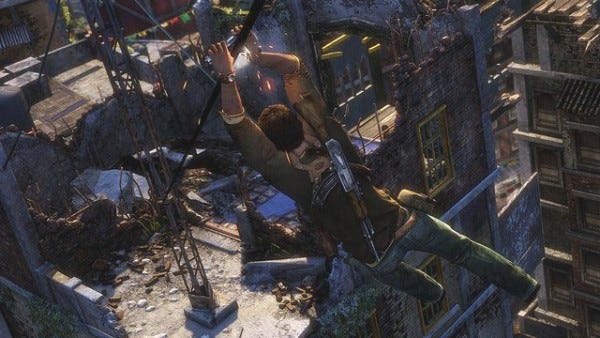
I think it was more a matter of “What did we do okay and could have done really well, if we put the effort behind it?” So, for instance, trying to draw the characters deeper than we did the first time. Now people aren’t looking at it and making comparisons to other games, or saying “Who’s this Nathan Drake guy?”ĪH: Yeah, and just thinking about the question as you asked it, I don’t know that we said, “Let’s not do that again.” I think it was more like what Evan said, how could we get a better balance between some of the game elements so it didn’t feel like we were moving from mode to mode. So now we have the foundation of the first game in place.

I think what we saw then, was that a lot of people, when they initially saw the game, because they were used to these exaggerated characters, is that they were like, “What is this?” and “I don’t know what to expect going into this.” It wasn’t until they played it that they fell in love with it. Maybe a little bit extraordinary in the sense that he’s got stronger fingertips. So when people saw him and said “Why do I want to play a guy in t-shirt and jeans?” that was a deliberate move on our part, to say look, he’s just a guy. We knew that in order to pull it off, we had to have a hero who was completely relatable, just a regular guy. When we set out to do Uncharted, we decided we wanted to tackle one of these beloved action-adventure games in the spirit of this whole tradition. Everybody’s a little bit of a caricature in most video games, a little bit stereotypical–exaggerated, or a little cartoony. Heroes and characters tend to be drawn large. To be honest, there’s a certain amount of a marketing challenge with a game like this, because what we’re trying to do is something that ironically sets it apart in the sea of video games. When people play it they have to tell their friends, and it’s almost like they’ve found this hidden gem, which I think creates a stronger sense of attachment where they’ve found it themselves instead of having it marketed to them. It really speaks volumes about the quality of the product.Įvan Wells: It’s actually still selling quite well today, and as Amy said, I think it’s largely due to the word of mouth it gets.

It feels like even though this snuck into the marketplace and there wasn’t a lot of brand awareness, people told their friends about it, and it just sort of spread like that. I think a lot of where we succeeded with Drake’s Fortune was on word of mouth, which was great, because as a creator that’s vindication for us. Certainly when you’re making something, you don’t want to feel you’re trying to appeal to the lowest common denominator. Are you satisfied with the level of brand awareness Drake’s Fortune received?ĪH: I think you always wish there was even greater brand awareness. Looking now, the game’s actually sold something like 2.5 million to date, putting it in company with games like Killzone 2 or Fable 2.

GO: Uncharted: Drake’s Fortune got a lot of great press, but I’ve had this sense that it was a sleeper hit, that it deserved to sell better than it did.


 0 kommentar(er)
0 kommentar(er)
